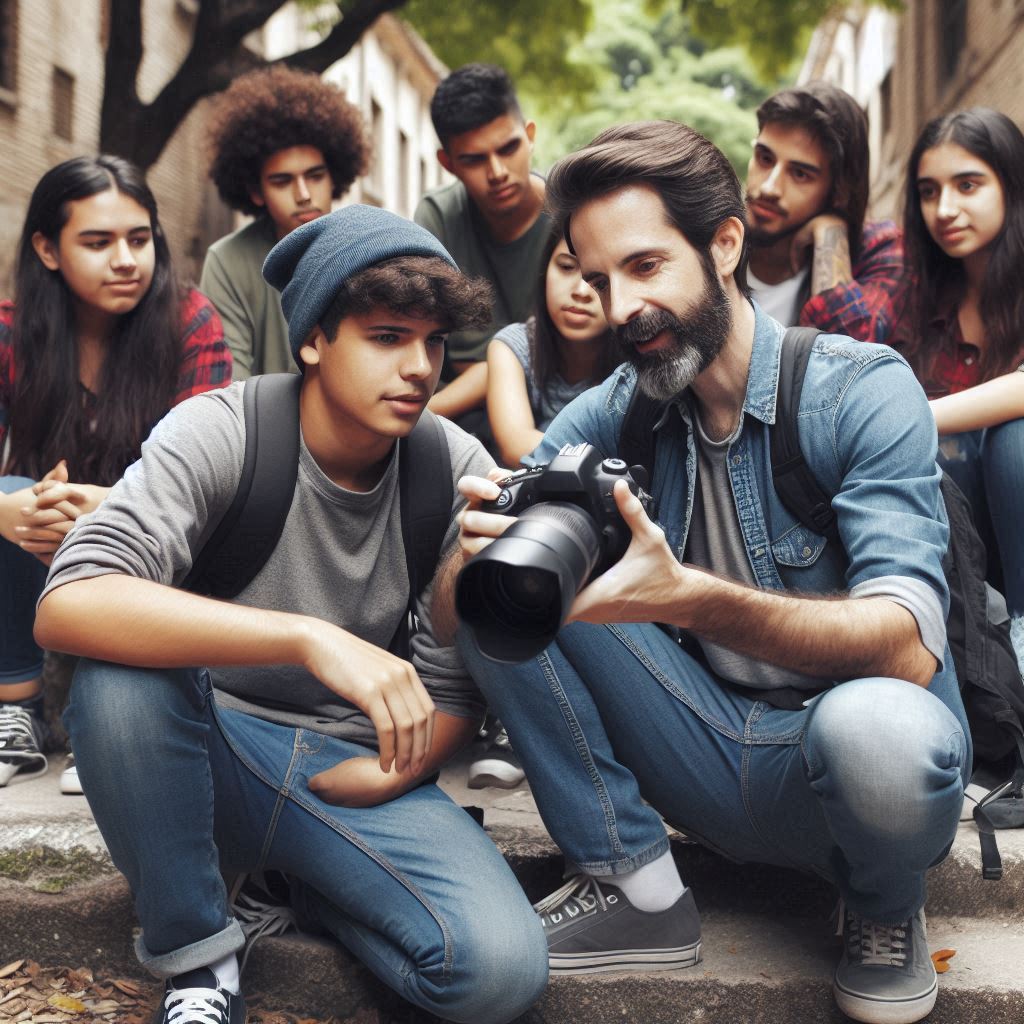100 Photography Tips: Master Your Craft
31. Use Slow Shutter Speeds
Explanation:
Slow shutter speeds can create unique effects, such as blurring motion or light trails.
Example:
Capture the movement of clouds or the flow of water using long exposures.
Assignment:
Experiment with various shutter speeds in different environments to see how they affect motion capture.
32. Incorporate Natural Frames
Explanation:
Using natural elements (like trees or archways) to frame your subject can create more engaging compositions.
Example:
Photograph a person through a doorway or between branches to add depth.
Assignment:
Find locations with natural frames and create a series of images that highlight this technique.
33. Take Advantage of Local Markets
Explanation:
Local markets offer vibrant colors, interesting subjects, and candid moments to capture.
Example:
Photograph vendors, fresh produce, and interactions among shoppers.
Assignment:
Spend a morning at a local market, focusing on candid moments and vibrant colors.
34. Experiment with Abstract Photography
Explanation:
Abstract photography emphasizes shapes, colors, and forms rather than identifiable subjects, allowing for creative expression.
Example:
Capture the patterns in shadows or the play of light on surfaces.
Assignment:
Create a series of abstract images focusing on colors, patterns, and textures.
35. Use the Histogram
Explanation:
The histogram helps you evaluate the exposure of your image, showing the distribution of shadows, midtones, and highlights.
Example:
A well-balanced histogram will have data spread evenly across the spectrum.
Assignment:
Review the histograms of your photos and adjust your exposure settings based on what you observe.

36. Capture the Essence of Travel
Explanation:
Travel photography tells stories about places, cultures, and experiences.
Example:
Document local customs, street scenes, and iconic landmarks.
Assignment:
Create a travel photo essay that showcases your experiences in a recent trip.
37. Use Props Wisely
Explanation:
Incorporating props can add context and narrative to your photography.
Example:
A book in a portrait can reveal more about the subject’s personality.
Assignment:
Take a series of portraits incorporating different props and analyze how they change the story.
38. Create Photo Stories
Explanation:
Photo stories allow you to convey a narrative through a series of images.
Example:
Document a day in the life of a local artisan through a sequence of photos.
Assignment:
Choose a subject and create a photo story that captures their daily routine.
39. Analyze Famous Photographers
Explanation:
Studying the work of established photographers can inspire and inform your own style.
Example:
Analyze the compositions and techniques of photographers like Ansel Adams or Dorothea Lange.
Assignment:
Choose a photographer and create a photo series inspired by their style or techniques.
40. Capture Architectural Wonders
Explanation:
Architectural photography showcases the beauty of structures and design.
Example:
Photograph a local landmark, paying attention to lines and angles.
Assignment:
Create a series of architectural photos in your city, experimenting with perspective and lighting.
